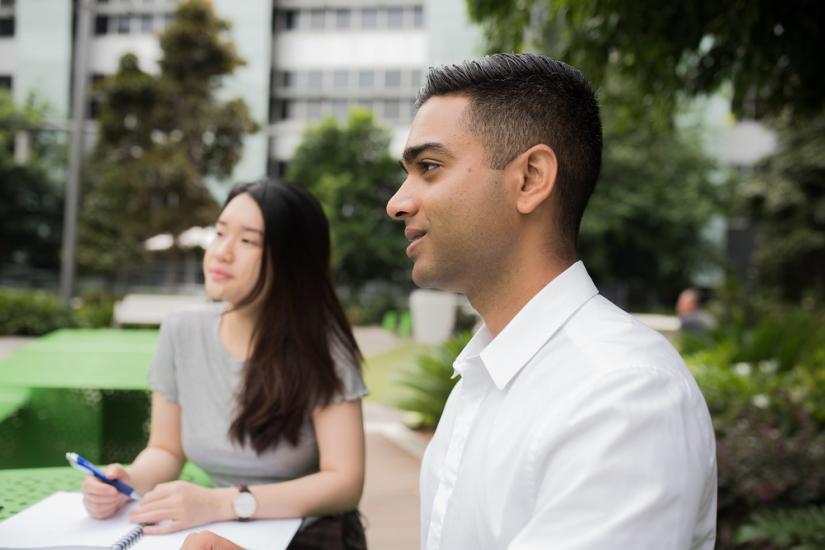
With the international student market now worth $32.2B a year in Australia, students choosing to study here is critical to the future of the local business and education community. With the tourism boom and many other economic growth trends supported by students, is it solely the role of Universities to facilitate the transition from home country to Australia, and then support student career pathways beyond their degree? We speak to Ryan, who works closely with the international student community at UTS and sees the benefits they bring, not only to the economy but to the industries they work for.
Tell me about yourself, and your role with Careers?
I work in our Careers Programs Team, which involves programs and events outside of curriculum across the breadth of UTS. Our flagship program is the Accomplish Award which is a yearlong employability program preparing students for professional life. Amongst that we hold different events that help students to build their skills alongside the knowledge and practical experience that occurs within subjects. One thing I really enjoy is coordinating our “Network Café”, which is run to help build community for students studying at UTS from overseas, whether on exchange, or here for their whole degree.
Why are we asking students to participate in these programs? Does it really make a difference to be involved in something like “Network Café”, when they're also completing a degree (and sometimes more)?
Often, students can be anxious when they arrive. It’s a huge change, to leave what’s familiar and learn new things in a new language with new people, in a new city. One thing I notice is that often an international student will think twice about the way they respond or interact. Initially, it can be hard to know what’s appropriate or to understand what another person is saying if they aren’t used to the way we joke or have fun.
Programs like this give students an informal platform to practice interacting, to ask questions, and to grow in confidence.
We help students to make contacts and network, which we know is a huge benefit of studying in a place like UTS. Many students are already very accomplished and some of them are here to develop businesses, attract new business partners, or pursue a particular career path.
Research shows that interventions on campus, focused on social interaction can make the difference in terms of a students’ experience. Is that why have programs like Network Café, for example?
Network Café might seem like a social club, and it is. It's about enhancing the student experience and it’s open to first-year international students. We make people feel welcome. We facilitate students learning to communicate in many different settings. They’re getting a chance to trade perspectives and bring diversity. When you think about a city like Sydney, this sort of thing is necessary. It helps to ground students and improve their overall work-life balance.
Would you say that a priority for UTS Careers and for the University broadly, is to grow students’ abilities in intercultural communication? What are the benefits of doing this?
We know that two-thirds of international students in Australia experience loneliness at some level. You need to practice communication to excel at it. Logically speaking, if we help students improve in holistic life-skills like intercultural communication, we are working at a level that benefits the student, benefits our University culture and diversity, and the benefits flow on to employers
What are the positive things that international students bring to UTS as a whole?
It’s a big risk, coming here to study from another country.
You’re talking about people with the courage and resilience to embrace an unknown culture, a new environment, a new language.
The workforce is changing constantly, problem-solving skills are very sought after. From the day an international student lands in Sydney, its full-time problem-solving. I am often impressed by students and their ability to adapt, to think quickly and to handle complexity.
What would you say to employers who are considering hiring international students?
We know that these students are open, adaptive, and resilient. It’s important to remember that while students can work while studying, and some can work for a period of time afterwards, not everyone is chasing a visa or sponsorship. We also know that diversity in a workplace adds strength.
Ryan Abednego works for UTS Careers as an Employability Officer, coordinating the extracurricular programs run throughout the year. He is particularly passionate about assisting students during their time at university, as they work towards their future ambitions.

